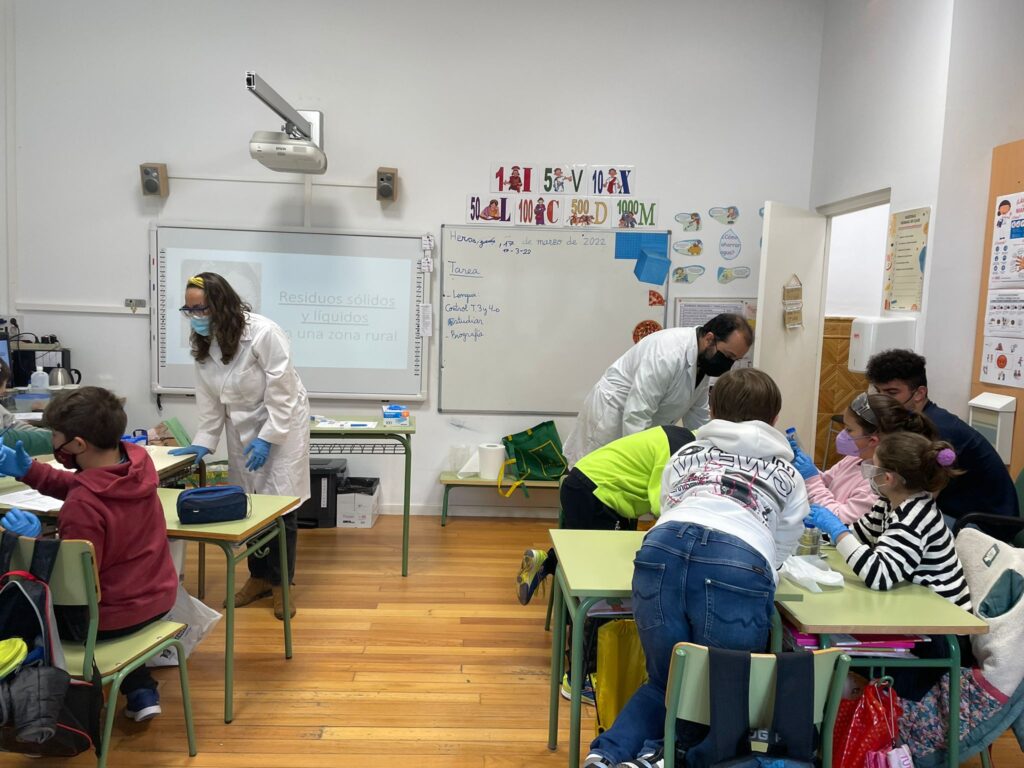Los profesores Alberto Coz y Tamara Llano del departamento de Química e Ingeniería de Procesos y Recursos de la UC han estado el pasado jueves 17 de marzo en el Colegio Rural Agrugado C.R.A. Peña Cabarga. Han realizado con un total de 13 alumnos de 4º de primaria el taller “Cómo aprovechar los residuos y evaluar la contaminación de zonas rurales de forma innovadora y creativa”.

Los profesores hablaron sobre el proyecto europeo CELISE coordinado por la UC en la que participan un total de 14 entidades públicas y privadas de Europa y Latinoamérica. Realizaron diversos experimentos sobre residuos generados en áreas rurales y residuos domésticos y se plantearon posibles vías de valorización de los residuos formulados. Se hicieron experimentos de degradación de plásticos en diferentes disolventes, y se analizó el pH de muestras cotidianas y de corrientes residuales.
Puede verse la noticia completa publicada en la sección de noticias de la UC en el siguiente enlace: https://web.unican.es/noticias/Paginas/2022/marzo_2022/Feria-Fomento-CRA.aspx
